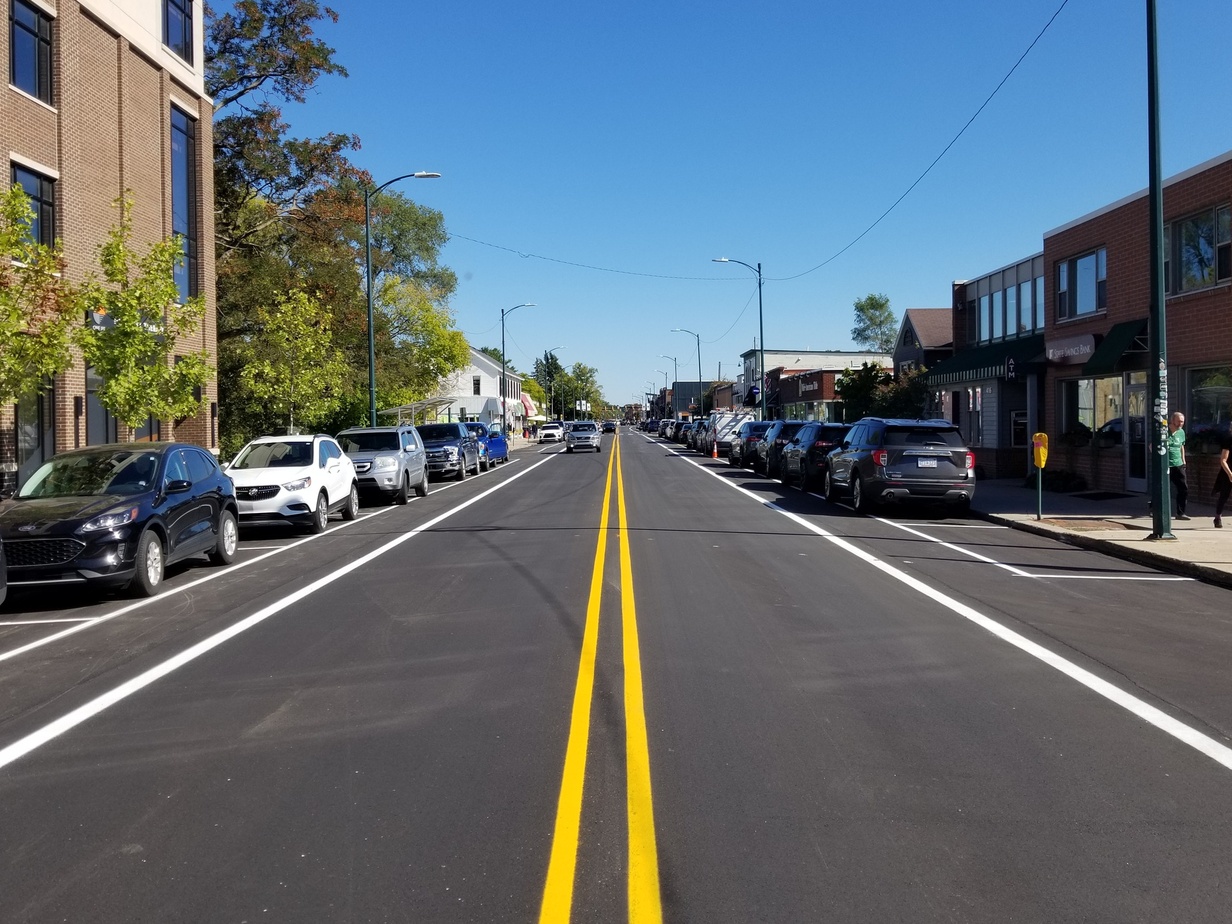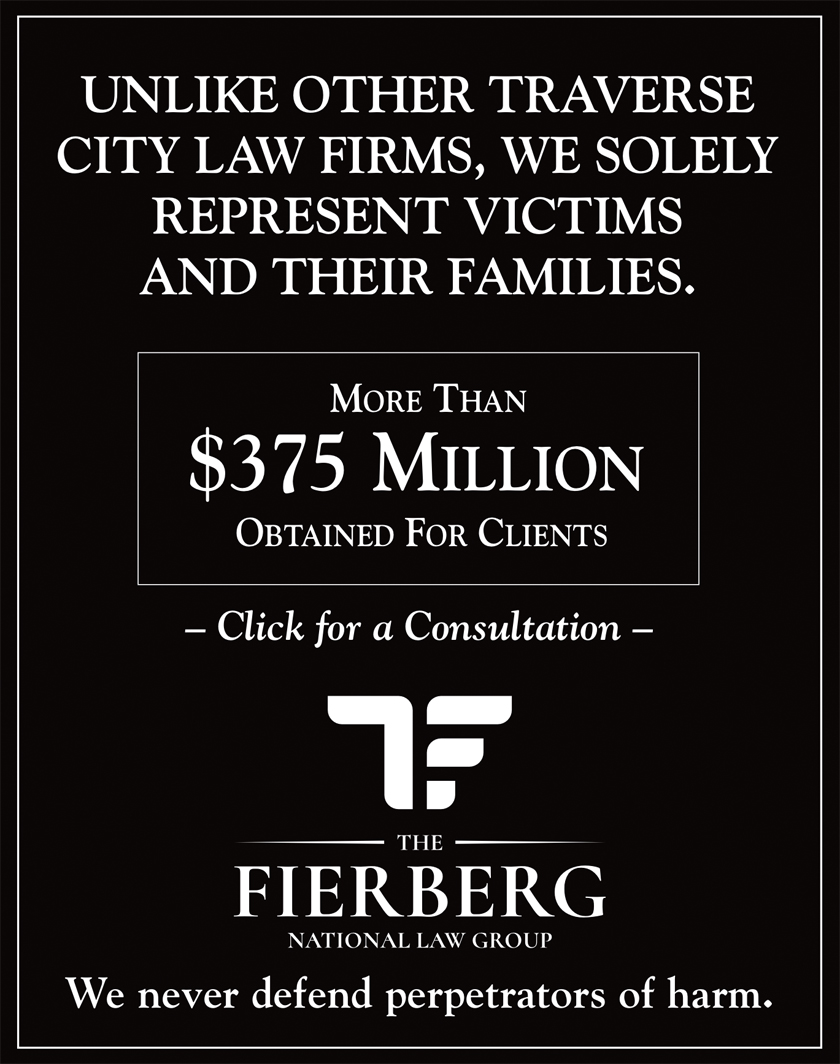
Employee Pay, Complete Streets, Rooftop Spaces On City Agenda
By Beth Milligan | Oct. 3, 2022
Traverse City commissioners will vote tonight (Monday) to use some of the city’s $1.65 million in American Rescue Plan Act (ARPA) funds to make a one-time salary bonus payment of $500 to all full-time city employees. Commissioners will also consider approving an updated “Complete Streets” policy – which emphasizes including safe and convenient access for all forms of transportation in street design decisions – and approving a previously-discussed new zoning ordinance that would give developers more freedom to include rooftop spaces on their buildings.
Employee Pay
Nearly 200 city employees could receive $500 bonuses under a proposal to make one-time staff payments using city ARPA funds. According to Assistant City Manager Penny Hill, the bonuses would be distributed to 150 regular full-time employees of the city, including 40 Traverse City Light & Power employees and 22 Downtown Development Authority (DDA) employees. The city would then separately execute letters of understanding with unionized employees to handle distributing bonuses to those staff members under the city’s collective bargaining agreements.
Hill notes that such bonuses are an allowed use of state and local fiscal recovery funds under ARPA. City Treasurer and Finance Director James Henderson estimated in August that the total cost of bonus payouts would be $90,000 based on employment levels at that time. “Due to current inflationary factors, this (bonus) would be valued by city staff in recognizing current circumstances,” he said.
The city received its final installment of ARPA funds on June 30, bringing the total amount awarded to $1,653,886. City leaders have until the end of 2024 to obligate use of the funds and until the end of 2026 to make final distributions. Staff have outlined several other potential uses for the remaining funds, with ARPA rules allowing for a broad range of spending in the categories of COVID recovery, replacing lost public sector revenue, providing premium pay for workers, and investing in infrastructure.
Among the options that staff deemed a “good fit for meeting the spirit” of ARPA, in Henderson’s words, are installing a slip line system in the city’s sanitary sewer system, expanding the city’s tree canopy, and covering monitoring and repair costs at the Union Street Dam. Some portion of the city’s ARPA funds could also go toward supporting affordable housing, based on previous commission discussion.
Complete Streets
After questions have emerged over how street redesigns can best serve all users in several recent project discussions – including the planned reconstruction of Grandview Parkway, East Front Street, Madison Street, and Jefferson Avenue – Commissioner Tim Werner is requesting that commissioners consider updating the city’s Complete Streets policy tonight. The policy was last updated more than a decade ago, in 2011, and outlined a “design framework that enables safe and convenient access for all users, including pedestrians, bicyclists, transit riders, and drivers of all ages and abilities,” according to the resolution.
Werner says that “much progress has been made since then, especially the city’s investment in new sidewalks and facilities for Safe Routes to School.” But after the community failed to rally around a proposed design for the reconstruction of East Front Street between Grandview Parkway and Boardman Avenue – requiring the project to be postponed for several years and a temporary resurfacing project to take place instead – Werner says he feels the 2011 commitment to embracing Complete Streets “has been forgotten by many in our community.” Accordingly, as “Traverse City moves toward a new master plan and a mobility plan, the city commission has the opportunity to restate and strengthen its commitment to Complete Streets,” Werner says.
Werner included an updated resolution and policy language he suggests commissioners adopt, superseding the 2011 version in its entirety. While many components remain similar between the two documents – including a key clause that states “streets that support and invite multiple uses, including safe, active, and ample space for pedestrians, bicycles, and transit are more conducive to the public life and efficient movement of people than streets designed primarily to move automobiles” – other aspects have changed. Those include new references to micromobility – which typically refers to e-bikes, scooters, skateboards, and other lightweight vehicles that go less than 15mph – and addressing climate change, an identified city commission priority.
The proposed document also includes several metrics by which the city will evaluate its effectiveness in implementing Complete Streets. Those include miles of sidewalk with pedestrian scale lighting, level of service in winter for all users, miles of non-existing sidewalks, number of people riding BATA’s Bayline, and number of people walking and biking along corridor streets. Noting that the city manager is “responsible for reporting on progress annually to the city commission during the CIP and budget process to aid in planning for the coming fiscal year,” Werner is suggesting that the annual report also include the end goal for each of the above performance measures, as well as “the anticipated timeline for achieving each goal.”
Rooftop Amenities
After Traverse City planning commissioners voted unanimously to recommend approval of a new zoning ordinance – one that would give developers more freedom to include rooftop spaces on their buildings – commissioners will consider voting tonight to approve the proposal. The board already discussed the zoning amendment once at a September 6 meeting; if approved tonight, it would be enacted with an effective date of eight days after publication.
The amendment would permit “occupiable enclosed space for rooftop amenities,” such as restrooms, storage areas, spaces used for food and beverage service, and “community rooms for the occupants of the building.” The zoning change would create a more formal and consistent allowance for rooftop amenities to “exceed the height limit of the district by a maximum of 15 feet,” so long as the building meets other requirements with its rooftop space. For instance, buildings located adjacent to recreational districts would be required to cease outdoor food and beverage service between 10:30pm and 6am, pause “outdoor performances and any other amplified sound” between 10pm and 7am, and meet certain setback requirements. In addition, occupiable enclosed rooftop amenity spaces would not be allowed to exceed “a total of 1,650 square feet or 20% of the rooftop area, whichever is less.”
The rooftop space would still have to stay under 60 feet or risk triggering a charter amendment requiring a public vote on buildings over 60 feet. Per a memo from City Planning Director Shawn Winter, rooftop uses have become especially popular lately, thanks in part to a post-pandemic appreciation for outdoor spaces.
Pictured: Recently resurfaced East Front Street. Photo credit: Traverse City DDA.
Comment






